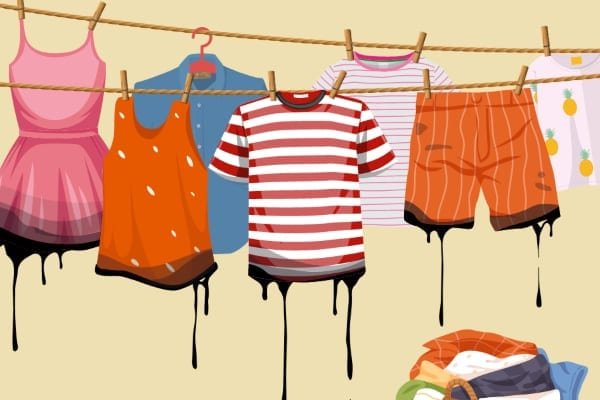The global fashion industry has developed a dangerous addiction to synthetic fibres, which are made from climate-destroying fossil fuels like oil and gas, to power its fast fashion business model, according to a new report.
Fossil Fashion: The Hidden Reliance of Fashion on Fossil Fuels charts how the use of synthetic fibres, especially polyester, has doubled in textiles in the last 20 years – and is likely to continue growing.
The report predicts synthetic fibres will reach nearly three-quarters of total global fibre production in 2030, with polyester accounting for 85% of this share.
Textiles and fashion
Textiles are used in all sorts of products like clothing, shoes, carpets or furniture, though the fashion sector is the largest consumer of textiles.
As of 2019, fashion accounted for more than 70% of the global textiles market.
Today, polyester is already found in more than half of all textiles.
The footprint of polyester production in 2015 was the equivalent of 700m tonnes of CO2, comparable with the total annual emissions of Mexico or 180 coal-fired power stations. That figure is expected to nearly double by 2030.
Betting on plastics
In addition, the oil and gas industry is betting big on plastics, from which polyester and synthetic fibres are made, as revenue from other sectors, such as transport and energy, declines.
Much of the future growth in demand for oil is projected to come from the production of plastics, with BP estimating the share could be as high as 95%.
Production of synthetic fibres is also getting dirtier, with feedstock coming from fracked gas and multi-billion dollar investments from a major Chinese polyester producer to convert coal into polyester yarn.
Polyester and fast fashion
The report also finds a striking correlation between the rise of polyester and the explosion of cheap, low-quality clothing that is causing a mounting waste crisis.
Some brands are now churning out as many as 20 collections per year, and people are buying 60% more clothes than 15 years ago – yet wearing them for half as long.
This trend is projected to worsen as global fashion production leaps from 62 million tonnes in 2015 to 102 million tonnes in 2030.
Surveys show that these trends are at odds with what Europeans want from the sector. One survey from 2019 found almost nine in 10 people wanted longer-lasting clothes (88%).
‘Not many consumers are aware that fast fashion is fossil fashion. The addiction of fashion brands to cheap polyester and other oil-derived fibres is coming at a time when the world is moving away from fossil fuels. But instead of moving away from synthetic fibres, which are causing an ecological disaster, brands want you to think they’ve got this under control and they can keep producing ever more clothes.’
URSKA TRUNK
Campaign manager at the Changing Markets Foundation
 Play Video about This Rock Might Just Save The World
Play Video about This Rock Might Just Save The World Play Video about Play 2 hours of rock
Play Video about Play 2 hours of rock Play Video about Play 2 hours of brook
Play Video about Play 2 hours of brook Play Video about Play 2 hours of sheep
Play Video about Play 2 hours of sheep















































